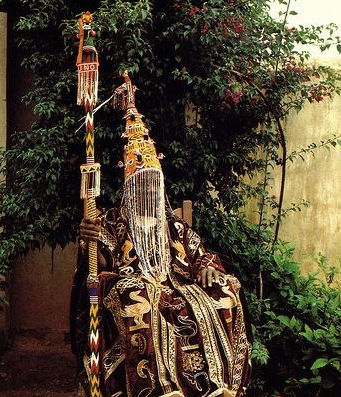
support@yorubalibrary.com
+2348073529208, 07038599574

Yoruba kings and chiefs hold esteemed positions within Yoruba society, serving as custodians of culture, tradition, and governance. Their roles extend beyond mere political leadership, encompassing spiritual, judicial, and social responsibilities. Understanding the significance of these roles provides insight into the rich heritage and organizational structure of the Yoruba people.
Historical Context of Yoruba Kingship
The institution of kingship in Yoruba culture dates back centuries, with each kingdom having its own royal lineage and traditions. The most prominent Yoruba kingdoms include Ife, Oyo, and Benin, each with its own unique history and royal practices. Kings, known as Obas, and chiefs play a vital role in maintaining the continuity and stability of these kingdoms.
The Role of the Oba
The Oba, or king, is the highest authority in a Yoruba kingdom. His role is multi-faceted, combining political, spiritual, and cultural duties:
• Political Leadership: The Oba serves as the head of the kingdom, overseeing governance and administration. He is responsible for maintaining law and order, implementing policies, and representing the kingdom in external affairs.
• Spiritual Leadership: As a spiritual leader, the Oba is regarded as a mediator between the gods and the people. He performs religious rituals, presides over festivals, and ensures the kingdom's adherence to traditional religious practices.
• Cultural Custodian: The Oba is a guardian of Yoruba culture and heritage. He upholds customs, traditions, and historical practices, ensuring they are preserved and passed down through generations.
• Judicial Functions: The Oba also acts as a judge, resolving disputes and administering justice within the community. His judgments are based on traditional laws and customs.
The Role of Chiefs
Chiefs, or Oloyes, assist the Oba in governing the kingdom. They hold various titles and responsibilities, each contributing to the administration and cultural life of the community:
• Administrative Chiefs: These chiefs oversee specific aspects of governance, such as finance, defense, and public works. They help implement the Oba's policies and manage the day-to-day affairs of the kingdom.
• Spiritual Chiefs: Spiritual chiefs, such as the Ifa priests, play crucial roles in religious ceremonies and divination. They provide spiritual guidance and perform rituals to ensure the kingdom's prosperity and well-being.
• Community Leaders: Chiefs also serve as leaders within their communities, representing the interests of their people and mediating conflicts. They act as liaisons between the Oba and the populace, ensuring effective communication and governance.
• Cultural Patrons: Many chiefs are patrons of the arts, supporting traditional crafts, music, and dance. They help preserve and promote Yoruba cultural expressions.
Selection and Coronation
The selection of an Oba or chief involves a complex process steeped in tradition. The Oba is typically chosen from a royal lineage by a council of kingmakers, who consider factors such as lineage, character, and leadership qualities. The coronation ceremony is elaborate, involving rituals, oaths, and the presentation of royal insignia.
Chiefs are appointed based on their contributions to the community, loyalty to the Oba, and lineage. Their installation ceremonies also involve traditional rites and the conferring of titles.
The Oba and Chiefs in Modern Yoruba Society
While the roles of Yoruba kings and chiefs are rooted in tradition, they have adapted to contemporary society. Today, Obas and chiefs continue to play important roles in local governance, cultural preservation, and community development. They collaborate with government officials and modern institutions to address contemporary challenges while maintaining their traditional responsibilities.
Conclusion
Yoruba kings and chiefs are pillars of their society, embodying the cultural, spiritual, and political heritage of the Yoruba people. Their roles as leaders, custodians of tradition, and mediators of justice are integral to the stability and continuity of Yoruba communities. By understanding their significance, we gain a deeper appreciation for the rich cultural legacy and organizational structure of the Yoruba people.

Learn about the Yoruba concept of Ìwà Pẹ̀lẹ́ (good…

Learn special praises for Divine Being and Creator…